Guardianship is established to protect the rights of incapacitated citizens. Thus, the basis for guardianship is the older person's duly established incapacity. The incapacity of an elderly person is determined by the court on the basis of a medical report on the presence of a mental disorder.
Attention: our family law lawyer will tell you in great detail about guardianship for elderly people, answer all your questions: professionally, clearly and clearly. Call now!
Conditions of guardianship for an elderly person
A guardian is a person who is the legal representative of the person under guardianship. The guardian makes all transactions on behalf of his ward, acting on his behalf and in his interests.
The condition for guardianship of an elderly person is also certain characteristics of the guardian’s personality. It should be:
- Adult;
- Capable;
- Not deprived of parental rights;
- Has not committed a crime.
When appointing a guardian, his moral character is also taken into account, as well as his relationship with the elderly person under his guardianship. In this case, the opinion of an incapacitated elderly person in need of care is taken into account.
It should be taken into account that relatives of an elderly person in need of guardianship have a priority right to be appointed guardians over all other persons.
What is meant by patronage?
Unlike full guardianship, patronage can be issued only at the will of the pensioner himself, with his full consent and the execution of a special agreement for the provision of assistance. Typically, the need for this may occur after a person is no longer able to independently cope with the most mundane everyday tasks. Patronage activities are also stipulated by law; it will not be possible if:
- A person has mental disorders - in this case, only a guardian is needed.
- Patronage is allowed only if there is complete trust in a stranger.
- Such activities are prohibited for social security employees appointed by the board of trustees as housekeeping assistants.
- All mutual relations must be formalized by an agreement, which spells out all the rights and obligations of both parties.
Procedure for obtaining guardianship over an elderly person
The general procedure for appointing a citizen as a guardian involves the following stages:
- Reception and registration of documents by guardianship and trusteeship authorities;
- Review of such documents;
- Deciding on the possibility of appointing a citizen as a guardian;
- Appointment of a guardian.
During the consideration of documents submitted by a person along with an application for appointment of an elderly person as a guardian, a decision may be made that it is impossible to appoint a guardian. The decision is formalized by an act of refusal.
The decision of the guardianship and trusteeship authority to refuse to appoint a guardian can be appealed in court. In addition, the act of guardianship regarding the appointment of a guardian may be challenged.
MORE : about establishing guardianship and trusteeship of incapacitated citizens via the link on our website
Time limits for registration of guardianship
A guardian is appointed to an incapacitated citizen within a month from the moment such a need arises.
Time limits have also been established for the guardianship and trusteeship authorities to make a decision to appoint a citizen as a guardian. This period is 15 days. This period begins to be calculated from the moment the guardianship and trusteeship authorities register the application for the appointment of a guardian. On the 15th day, a decision must be made on such an application, formalized by an act of appointment or refusal to appoint a guardian.
Court decisions
Unified bankruptcy procedure for spouses
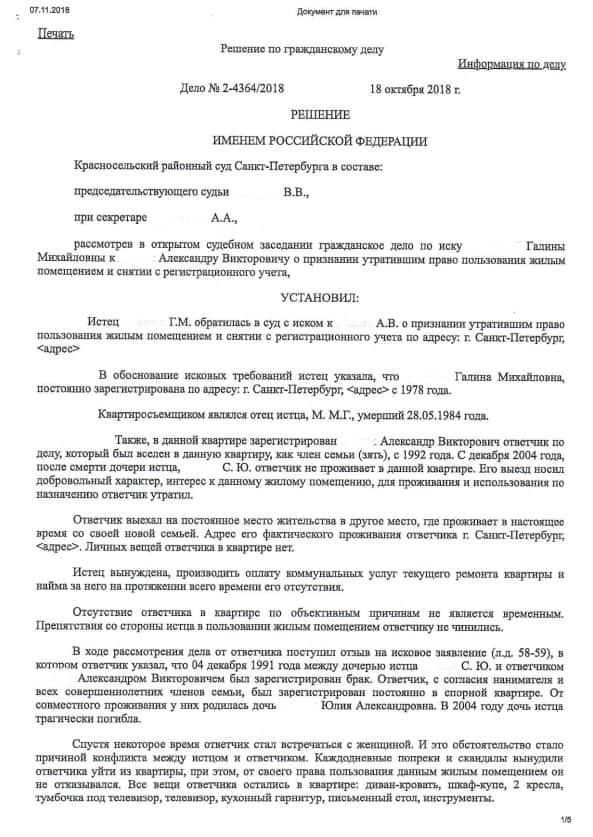
Money has disappeared from the card
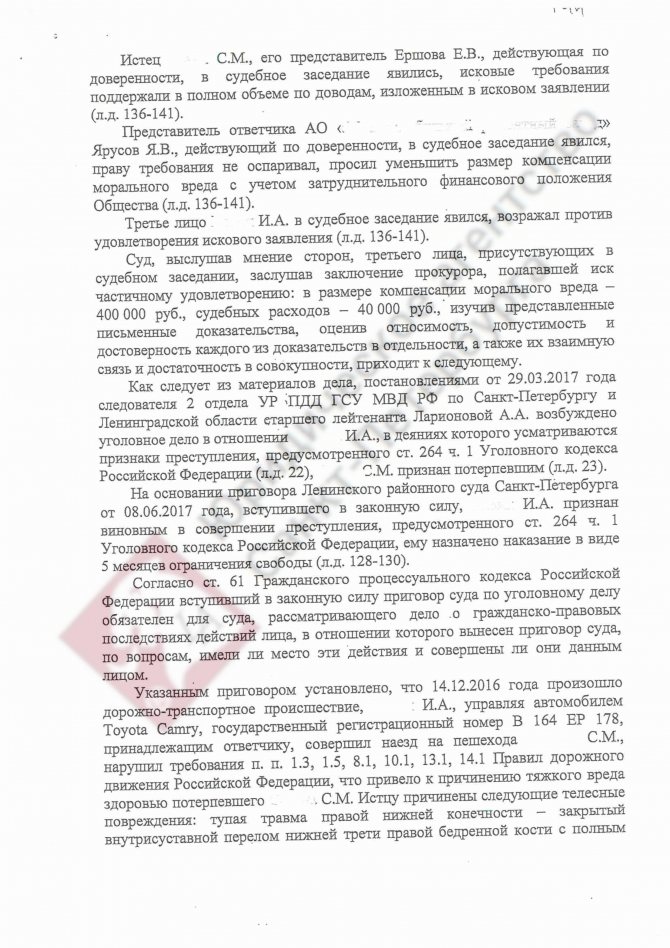
Pedestrian hit case
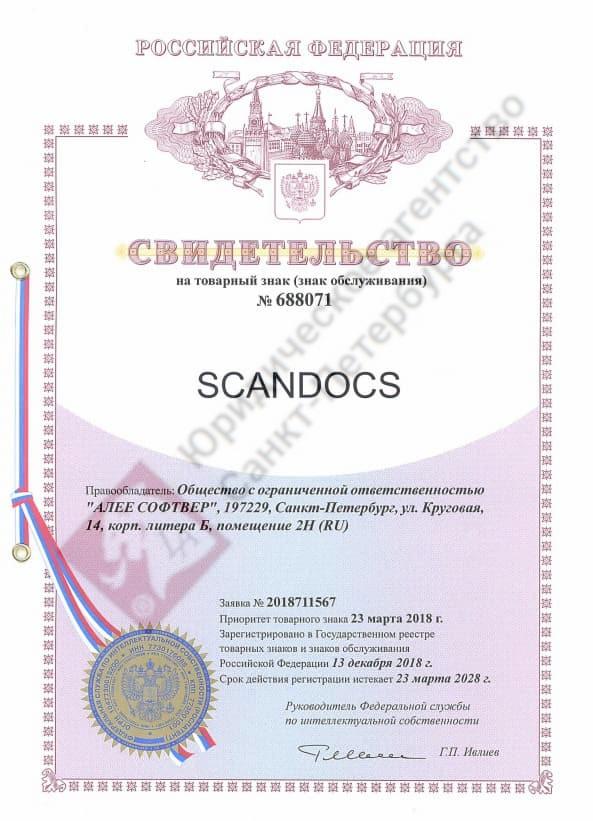
Registration of trademarks and service marks in a short time
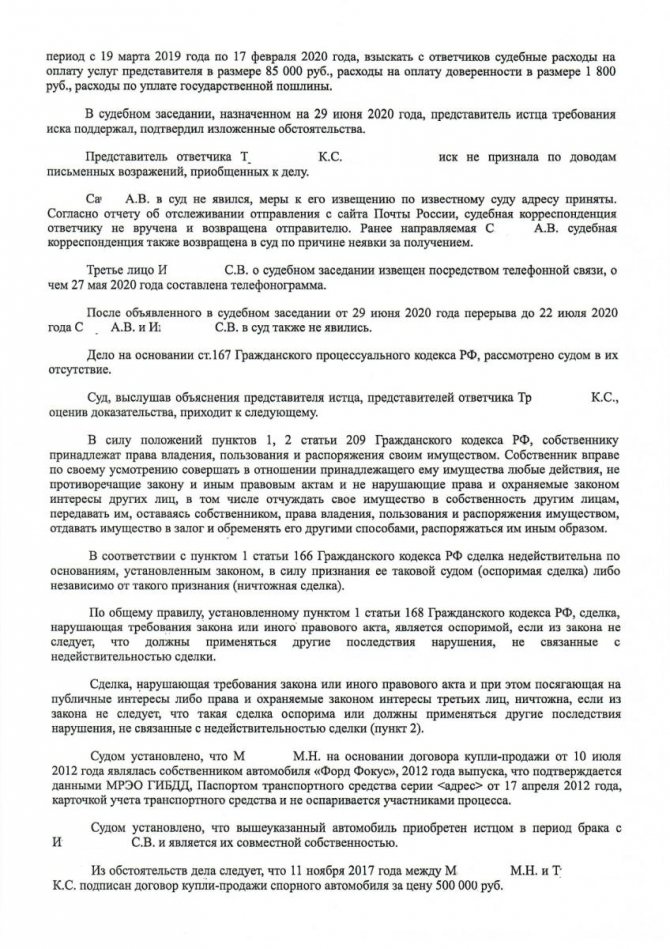
The wife challenged her husband's sale of a car registered to her
Accident with oncoming traffic: a drunk driver fled the scene of the accident
Payments for guardianship of an incapacitated person
The appointment of a guardian is a form of social assistance from the state. Caring for an incapacitated elderly person and fulfilling obligations under a contract of receipt makes it impossible for the guardian to work. For this reason, the guardian can count on guardianship payments, for the assignment of which it is necessary to contact the pension fund office at the place of residence. Payments to the guardian are assigned based on:
- Application for benefits;
- Certificates stating that the citizen who is the guardian does not receive pension payments;
- A certificate from the employment center confirming that the person who is the guardian is not registered as a job seeker;
- A copy of the identity card of the ward and guardian;
- A decision of the guardianship and trusteeship authorities or a court decision to appoint a guardian;
- Employment history.
The amount of monthly allowance to a guardian for his incapacitated ward who is a dependent is on average 1,200 rubles.
In addition, the guardian manages the income of the incapacitated person and enjoys certain benefits, including:
- Free use of public transport;
- Reimbursement of expenses for medicines and medical products;
- Spa treatment.
All payments received can be spent only as part of the performance of the guardian’s duties.
NOTE : if rights are violated, then a complaint against a guardianship and trusteeship officer can help in restoring them
Caring for an elderly mother, according to the law
The Criminal Code provides for one single article regulating the protection of the interests of elderly fathers and mothers.
Article 157 of the Criminal Code of the Russian Federation provides for the establishment of legal consequences due to evasion of maintenance of disabled parents and children from the financial side of the issue:
- Its first part is aimed at protecting the rights of minors and disabled children who have already turned 18 years old from malicious violation of the payment of alimony from parents determined by the court. Evasion leads to sanctions, designated in the form of forced correctional labor for one year or less, or in the form of arrest for a period of time, designated three months, or in the form of imprisonment for up to one year.
- By the same analogy, the state regulates the fulfillment of obligations by adult able-bodied children in relation to disabled parents, introducing similar sanctions for violation and evasion of payment of alimony prescribed by law.
The Family Code, as a state normative legal act, also regulates relationships concerning elderly parents and their able-bodied children. The Family Code stipulates the obligation of an able-bodied adult child to care for, look after and allocate funds for the maintenance of a father or mother in need of this help (Article 87 of the RF IC):
- If there is no agreement on the payment of alimony on the part of able-bodied children, the rights of the disabled parent include the opportunity to contact the authorities for legal proceedings to recover funds, if the father or mother needs financial assistance.
- The court takes into account the family and financial situation of both parties (both children and parents), including “others deserving the interests and attention of the parties” and sets a fixed amount of money - “alimony”, which must be paid monthly.
- Judicial authorities have the right to take into account all adult children who are able-bodied to determine the amount of monthly alimony, even if the applicant indicated only one of them in the claim.
The possibility of children not fulfilling their responsibilities aimed at supporting their elderly mother is stipulated by law. The amendment to the law covers parents (plaintiffs) who at one time shied away from fulfilling their direct parental responsibilities and were deprived of parental rights.
Thus, these circumstances are an exception; in all other cases, an elderly and disabled mother has every right to defend the collection of alimony in court.
In addition to cash payments in the form of alimony, able-bodied children are required to provide additional financial support to an elderly parent (father or mother), participating in their unforeseen expenses (Article 88 of the RF IC):
- The court has the right to impose an obligation to compensate or bear expenses caused by exceptional circumstances, which may include: injuries or serious illness, the ability to pay for outside care and other issues, if adult children of working age have stopped or never cared for a disabled mother, as well as about my father.
- As in the case of establishing alimony, the payment and amount of financial assistance for additional expenses of the parent is established taking into account all of the above nuances (marital status: number of children, financial condition of an able-bodied child, etc.), as prescribed by the provisions and articles of the Family Code.
- The parameters of the envisaged payment can be determined by agreement of the parties if they manage to come to a total amount.
Documents for guardianship of an elderly person
As mentioned above, the decision to appoint a guardian is made by the guardianship and trusteeship authorities or the court.
To apply to the guardianship and trusteeship authorities to establish guardianship over an elderly person, you must prepare the following documents:
- Application for establishment of guardianship;
- A copy of the applicant's passport;
- Certificate of income of the applicant;
- Medical report;
- Certificate of no criminal record;
- Consent of close relatives of an elderly person to appoint the applicant as a guardian;
- A medical report on the health status of an elderly person in need of care.
During the consideration by authorized bodies of an application to appoint a person as a guardian, additional documents may be requested:
- Certificate of ownership of the property of an elderly person in need of care;
- Data on the amount of the ward’s pension;
- A court decision declaring an elderly person incompetent;
- Other documents.
How to take leave to care for a sick relative
In Art. 128 of the Labor Code of the Russian Federation states that leave for a valid reason, for example, family circumstances, can be granted, however, wages are not retained. The duration of the vacation is determined by agreement of the parties.
To apply for leave, an employee must submit a written application. The employer is obliged to provide such leave to the following categories of employees:
- Working old-age pensioners (by age) (up to 14 calendar days during the year);
- Participants of the Second World War (up to 35 calendar days during the year);
- Parents, wives (husbands) of military personnel who died due to wounds, contusions, injuries received during the performance of military service duties, or due to illness associated with military service (up to 14 calendar days during the year);
- Employees in cases of the birth of a child, marriage registration, death of close relatives (up to 5 calendar days);
- Working disabled people (up to 60 calendar days during the year);
- In other cases provided for by the Labor Code of the Russian Federation, federal laws, and collective agreements.
In other words, the employer is not obliged to provide you with such leave. He can only agree to help his employees in a difficult situation.
Read material on the topic: Leisure for older people
Elderly Guardianship Court
The decision to appoint a citizen as a guardian of an elderly person can be made by a court. In addition, a judicial procedure is provided for appealing decisions of the guardianship and trusteeship authorities on the appointment of a guardian (refusal to appoint a guardian).
The process of registering guardianship over an elderly incapacitated citizen can last no more than a month. The court checks the documents of the candidate for guardianship, considers all the circumstances and makes a decision.
In addition, in the process of fulfilling the duties of a guardian, a citizen needs to maintain a report to the guardianship and trusteeship authorities. In the event that the specified authorities determine a violation of the guardian’s performance of his duties. Abuse of them, violation of the rights of the ward, the guardian is removed from duties. In a number of cases, there is a need to appeal the decision of the guardianship and trusteeship authorities to remove the guardian from duties. For example, if the guardianship and trusteeship authorities considered the use of the status of a guardian for personal gain, while the citizen acted in the interests of the ward.
ADDITIONALLY:
Customer Reviews
Feedback from Solovyova I would like to express my deep gratitude to lawyer Konstantin Vasilyevich Solovyov for his qualified assistance in resolving my issue. The decision was made in my favor, for which I am very grateful. I would also like to express my gratitude to the company’s team for their sensitive attitude towards clients.
Letter of gratitude to Ermakov A.V.
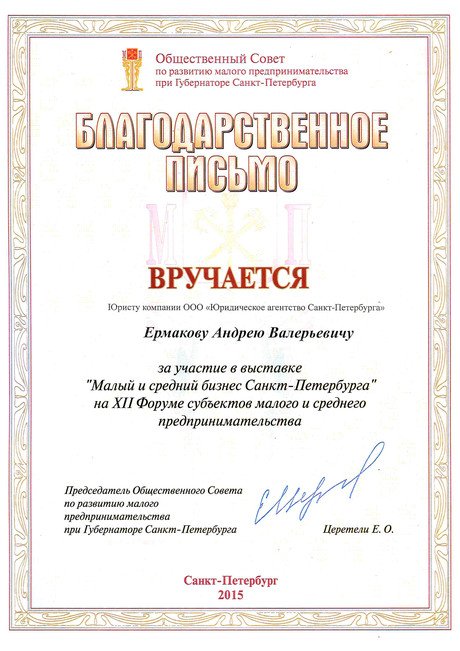
Review by Minina M.V. I would like to express my deep gratitude to Yuri Vladimirovich Sukhovarov for his competent advice and qualified assistance on my issue.
With gratitude, Minina Margarita Vladimirovna.
Gratitude from Natalya Gurova I would like to express my gratitude for the qualified and friendly advice from legal practitioner Daria Igorevna Zaprudnaya, Vasily Anatolyevich Kavalyauskas and Daria Valentinovna Kutuzova. The environment at the law firm is welcoming and professional. I wish you continued prosperity. Thank you for your help.
Best regards, Natalia Gurova. 07/06/2018
Gratitude from Vraveevsky S.A. Sergey Vyacheslavovich! Thank you very much for the consultation! All the details were disclosed to me in detail, all questions were answered comprehensively. I am very glad to receive help from a qualified specialist!
Vraveevsky S.A. 12/18/2018
Gratitude from Volkova N.E. I express my gratitude to Vasily Anatolyevich for his professional and competent assistance in resolving the issue of protecting my consumer rights. As a result, I received decent compensation from. Thank you!
Volkova N.E. November 30, 2018
Review by G.N. Antropova To the lawyer of the Legal Agency of St. Petersburg A.V. Ermakov
I express my gratitude to you for your professionalism in protecting my interests in a criminal case, Andrey Valerievich, allow me to express my gratitude to you for your help and support. I note your high professionalism and skillful actions in defending my positions.
Best regards, G.N. Antropov
Gratitude from Antonov Arkady I, Antonov Arkady Shanobich, turned to the Legal Agency of St. Petersburg for help due to the fact that when concluding an agreement for spinal treatment with Medstar, I was actually deceived in the cost of treatment and more. During the process of drawing up a treatment contract with me, no one explained to me that the treatment would be carried out using credit funds; the amount of treatment was constantly changing. My requests to be given longer time to familiarize myself with the procedures and consultations at their price list were refused. That is, there was actually pressure on the client. At home, when I carefully read the entire document, I realized that I had actually been deceived about money and treatment time. On October 30, 2018, I applied for legal assistance from the Legal Agency of St. Petersburg regarding the termination of the contract for treatment at Medstar and the termination of the loan agreement from Alfa-Bank. My case was handled by Denis Yurievich Stepanov, all issues were resolved very quickly and I was informed about all situations. I would like to thank Stepanov D.Yu. and all lawyers who work in this agency.
November 21, 2021
Gratitude from Volkotrub Yuri Vasilyevich Thank you very much for the quality advice on the issue that interests me. With best wishes to Denis Yuryevich Stepanov, who advised me.
Volkotrub Yuri Vasilievich
Gratitude from gr. Bogodyazh N.G. I, Bogodyazh N.G. turned to the Legal Agency of St. Petersburg for help in a dispute with the company RTC JSC regarding the refusal to return the goods in accordance with the rules of trade, thereby my consumer rights were violated.
Thanks to the company’s lawyer, Stepanov D.Yu., I was able to return the money for the low-quality product, and I also received an apology from my opponent. I would like to express my gratitude for the qualified assistance provided to me by D. Yu. Stepanov and the Legal Agency of St. Petersburg.
With gratitude, Bogodyazh.









